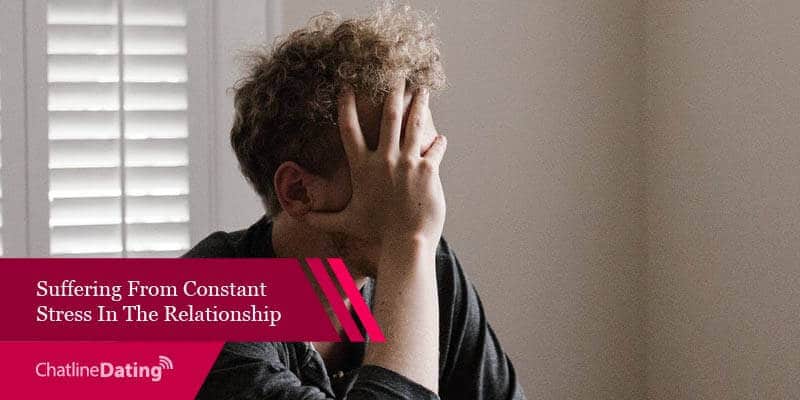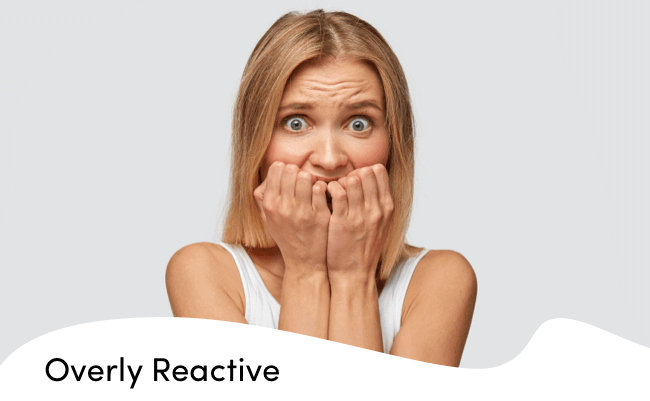Signs of a Codependent Relationship

A codependent relationship refers to a one-sided dysfunctional relationship wherein one person is extremely needy, clingy, and dependent upon another person. It is when one partner constantly needs the other person for validation of his actions, feelings, and decisions. In return, the other person enables and even fortifies the behavior.
Relationship experts refer to this as “co-dependency cycle”. It describes a relationship that encourages a partner to maintain their underachieving behavior and irresponsible practices.
A codependent person’s life will most likely revolve around pleasing his/her partner, who’s in fact, the “enabler”. As a result, the codependent’s self-worth comes entirely from self-abandonment for the sake of their partner, who gladly accepts and encourages their behavior and sacrifices.
In a normal and healthy relationship, two people depend on each other for love, comfort, and motivation. However, in a codependent relationship, the codependent person is unable to find his/her value unless they are needed by their partner or “enabler”. They actually end up making drastic sacrifices for the sake of their partner, who gets every bit of satisfaction from it. This is how they define their purpose and value in their relationship.
For apparent reasons, a codependent relationship strips away one’s dignity and self-respect. It is a definitive sign of being in a toxic relationship that is both unhealthy and demoralizing.
If you’re having doubts about the position you are in, take a look at the following codependent relationship signs to come up with a careful assessment about the kind of correlation you share with your partner.
1. The Codependent Partner Has No Personal Interests and Identity Outside the Relationship.

In a healthy relationship, both parties prioritize their love and relationship. However, they also find joy and fulfilment in their passion, career, and friends. They are able to balance the different aspects of their lives and allow each other to have a sense of independence.
In a codependent relationship, the “enabler” finds satisfaction in being constantly needed by their partner. The codependent partner eventually loses interest in other things, and practically has no life outside of the relationship.
2. The Codependent Partner Has Difficulty Recognizing Their Own Needs and Emotions.

A codependent partner constantly feels that their needs are not important, which is why they do not express them at all. This person will most likely neglect the important aspects of their life in an attempt to please and make their partner happy. This is quite alarming because it is within human nature to respond to situations that they find unsuitable for them.
In a healthy relationship, both parties are free to express their needs and feelings. They are able to make compromises to come up with suitable ways to make their arrangement beneficial and rewarding for both of them.
3. Poor Boundaries in a Relationship.

Personal boundaries are essential in every relationship. Your boundaries create a distinction between what is yours and what is your partner’s, and these include personal stuff, money, thoughts, feelings, and even your body. This is usually where codependents fail, because they tend to have weak and shadowy boundaries.
Codependents feel responsible for their partner’s problems and weaknesses. They usually put the blame on themselves or on others. There are also some codependent individuals that build rigid boundaries towards other people to protect their partners. Most of the times, they are too withdrawn that even their family and close friends are finding it hard to get close to them.
4. The Codependent Person Ends Up Damaging Their Other Relationships.

In every relationship, it is important for both parties to recognize the other people in each other’s lives. These include their families, relatives, friends, and colleagues among others. A codependent person may end up damaging these relationships due to extreme dedication to their partner. Sadly, and in most cases, the “enabler” allows this to happen.
In some codependent relationships, things do not necessarily go this far for the enabler. In fact, it could be an outcome of a situation that swiftly unfolds due to the lack of self-worth and identity of the codependent partner.
5. Constant Denial About Being in a Codependent Relationship.

Individuals who are in a codependent relationship are usually in constant denial about it. They refuse to admit and face the problem. Oftentimes, they have this perception that the problem lies in someone else, or their situation is simply misunderstood by others. As a result, they either complain repeatedly or attempt to fix the other person. In some cases, they would try to evade the problem by blaming others.
Codependent partners have difficulty processing their feelings. Instead, they focus on what their partner is feeling and take their own emotions for granted. They deprive themselves of what they deserve just to provide for their partner – and they feel that it is the right thing to do. The behavior can also shift drastically from being needy to having trouble receiving affection. For example, they deny their need for love, attention, and intimacy. This instability can cause a lot of confusion in a relationship.
6. The Codependent Person Ends Up Damaging Their Career and Daily Responsibilities.

This is perhaps one of the most serious implications of being in a codependent relationship. When one person ends up being unproductive, ineffective, and negligent due to their excessive attention to their partner, it is a definitive sign that the relationship has reached far beyond the toxic levels.
In a healthy relationship, both parties support and motivate each other to grow and prosper in their own respective ways. They do not encourage lack of ambition and idleness. If this is not the case between you and your partner, then you need to take a step back to reflect on your relationship.
7. A Codependent Person Gives More but Receives Less From Their Partner.

Codependents are investing a whole lot more than what they are receiving in the relationship. They do it to strengthen their attachment and to please their partner. They have this belief that by neglecting their own wants and needs, they are reducing their anxiety of being abandoned and rejected in the relationship. However, there is no clear evidence that they are getting what they deserve from their partner.
The partner, on the other hand, likes to take advantage of the good qualities of the codependent simply because they are gaining more out of it. The worse thing that an “enabler” could do is to use their partner’s love, generosity, and patience to avoid adult responsibilities or to evade the consequences of their immaturity and lack of responsibility.
8. Suffering From Constant Stress in the Relationship.

Codependency can put a lot of stress on a relationship. When you’re unable to communicate efficiently and express your emotions, problems are bound to unfold during the course of the relationship. The lack of balance can take its toll and it’s only a matter of time before things get out of hand.
In this case, both parties are afraid to be left alone, but neither of them is happy about their relationship. Toxic situations could happen, since one partner will most likely try to keep the other happy without even trying to resolve any of their issues.
9. A Codependent Partner Is Overly Reactive.

When one’s identity depends a lot on pleasing others and they feel responsible for other’s well-being as well, they will most likely react to situations instead of acting out of their own free will. For example, a person who’s extremely suffering from codependence can be very defensive and has a tendency to internalize all criticisms. This is usually attributed to the fact that they have lost touch with their own wants and needs. Thus, they are finding it hard to become proactive and rational in their relationship.
10. A Codependent Partner Never Gets Their Way.

Here’s the scenario, a codependent feels like staying at home, but the partner is in the mood to go out and party. In a healthy relationship, the couple would get into a compromise to stay home for the night, and make plans the following day. In a codependent relationship, the enabling partner might nag and complain about “how boring the partner is which is why they don’t have a life”. This would cause the codependent partner to feel bad and guilty at the same time, thinking that there is indeed something wrong with them. So they’ll eventually end up going out to party, while disregarding their own feelings.
It may seem like a minor problem, but it provides a clear picture of how one person’s needs are not properly acknowledged and valued in a relationship. In this sense, a codependent usually never gets their way in the relationship, because they neglect their needs in order to attend to their partner’s first.
The Bottom Line: Recognizing the Codependent Relationship Signs
Do you pour out all your time and energy in meeting your partner’s demands? Do you feel overly confined in your relationship? Are you the only one who’s always doing the hard work and making sacrifices to keep things on the right track?
If your answer to these questions is a definitive “yes”, then you may be in a codependent relationship. Experts agree that people in a codependent relationship are not necessarily weak or bad people. The truth is that most of them are dealing with a certain degree of insecure attachment. However, their relationships can eventually become toxic when one or both partners lose sight of their identities and self-worth.
Codependency refers to a psychological construct that involves an unhealthy relationship. If you or your partner are constantly fixating on each other’s mistakes and always displaying fear of abandonment, you might be confusing pity for love (or the other way around). In this sense, the need to be loved and always be in a relationship is also a sign of codependency.
Assess the situation you are in carefully. Never lose sight of the fact that a healthy relationship is one that is strongly based on mutual support, respect for boundaries, and good communication. If your heart and mind tells you that you are indeed in a codependent relationship, the only way to redeem yourself and your self-worth is by knowing when to give, when to take, and when to walk away.













